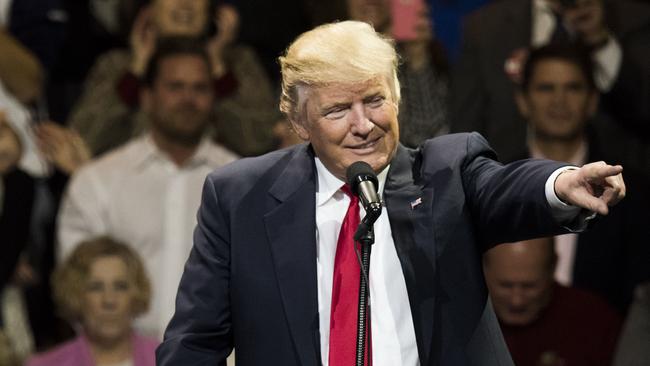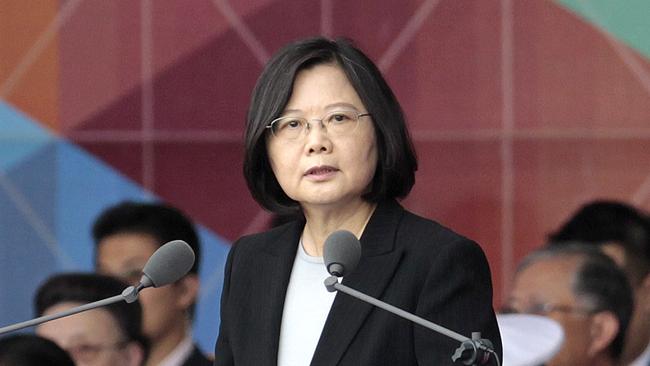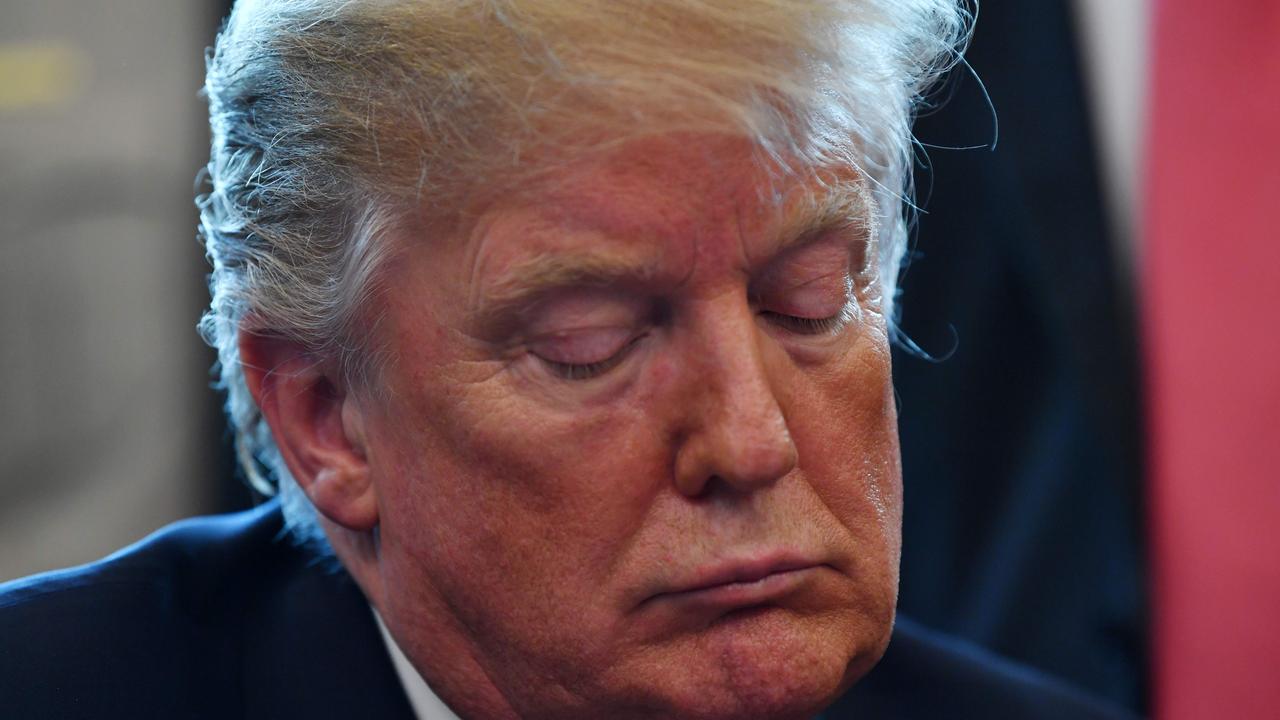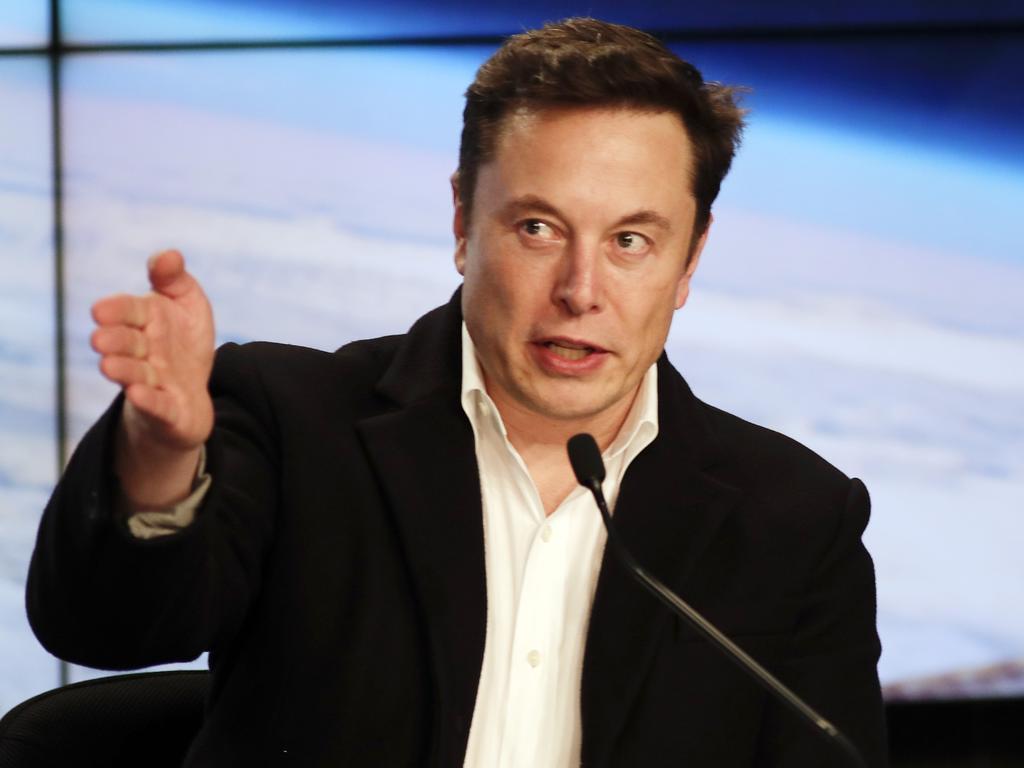Donald Trump speaks to Taiwan leader, risks China rift
Chinese Foreign Minister Wang Yi says that the call between Taiwan’s president and Trump was ‘a small trick by Taiwan’.

President-elect Donald Trump has spoken with the president of Taiwan, a move that will be sure to anger China.
It is highly unusual, probably unprecedented, for a US president or president- elect to speak directly with a leader of Taiwan, a self-governing island the US broke diplomatic ties with in 1979.
Washington has pursued a so-called “one China” policy since 1979, when it shifted diplomatic recognition of China from the government in Taiwan to the communist government on the mainland. Under that policy, the U.S. recognises Beijing as representing China but retains unofficial ties with Taiwan.
A statement from Trump’s transition team said he spoke with Taiwanese President Tsai Ing-wen, who offered her congratulations.
“During the discussion, they noted the close economic, political, and security ties ... between Taiwan and the United States.
President-elect Trump also congratulated President Tsai on becoming President of Taiwan earlier this year,” the statement said.
Trump later defended the call in a series of Tweets.
The President of Taiwan CALLED ME today to wish me congratulations on winning the Presidency. Thank you!
— Donald J. Trump (@realDonaldTrump) December 3, 2016
Interesting how the U.S. sells Taiwan billions of dollars of military equipment but I should not accept a congratulatory call.
— Donald J. Trump (@realDonaldTrump) December 3, 2016
The Taiwanese presidential office issued a statement saying Trump and Tsai discussed issues affecting Asia and the future of U.S. relations with Taiwan.
“The (Taiwanese) president is looking forward to strengthening bilateral interactions and contacts as well as setting up closer cooperative relations,” the statement said.
“The president also told U.S. President-elect Trump that she hopes the U.S. will continue to support Taiwan’s efforts in having more opportunities to participate in and contribute to international affairs in the future,”
Tsai’s office said. It said the two also “shared ideas and concepts” on “promoting domestic economic development and strengthening national defence” to improve the lives of ordinary people.

China’s reaction
China’s foreign minister says he hopes Beijing’s relations with the US won’t be damaged after President-elect Donald Trump broke with decades-long diplomatic tradition and spoke directly with Taiwan’s leader.
It is highly unusual, probably unprecedented, for a US president or president- elect to speak directly with a leader of Taiwan, a self-governing island the US broke diplomatic ties with in 1979.
Chinese Foreign Minister Wang Yi said on Saturday the call between Taiwan’s president and Trump was “just a small trick by Taiwan” that he believed would not change US policy toward China, according to Hong Kong’s Phoenix TV. “The one-China policy is the cornerstone of the healthy development of China-US relations and we hope this political foundation will not be interfered with or damaged,” Wang was quoted as saying.
Washington has pursued a so-called “one China” policy shifting diplomatic recognition of China from the government in Taiwan to the communist government on the mainland. Under that policy, the US recognises Beijing as representing China but retains unofficial ties with Taiwan.
A statement from Trump’s transition team said he spoke with Taiwanese President Tsai Ing-wen, who offered her congratulations.
“During the discussion, they noted the close economic, political, and security ties ... between Taiwan and the United States. President-elect Trump also congratulated President Tsai on becoming President of Taiwan earlier this year,” the statement said.
Trump tweeted later: “The President of Taiwan CALLED ME today to wish me congratulations on winning the Presidency. Thank you!” The Taiwanese presidential office issued a statement early Saturday saying Trump and Tsai discussed issues affecting Asia and the future of US relations with Taiwan.
“The (Taiwanese) president is looking forward to strengthening bilateral interactions and contacts as well as setting up closer co-operative relations,” the statement said.
“The president also told US President-elect Trump that she hopes the US will continue to support Taiwan’s efforts in having more opportunities to participate in and contribute to international affairs in the future,” Tsai’s office said.
AP
White House reaction
The White House learned of the conversation after it had taken place, said a senior Obama administration official, who requested anonymity because of the sensitive diplomatic relations involved.
China’s embassy in Washington did not immediately respond to a request for comment.
Friday’s call is the starkest example yet of how Trump has flouted diplomatic conventions since he won the election. He has apparently undertaken calls with foreign leaders without guidance customarily lent by the State Department, which oversees U.S. diplomacy.
Tsai was democratically elected in January and took office in May. The traditional independence-leaning policies of her party have strained relations with Beijing.
Over the decades, the status of Taiwan has been one of the most sensitive issues in U.S.-China relations. China regards Taiwan as part of its territory to be retaken by force, if necessary, if it seeks independence. It would regard any recognition of a Taiwanese leader as a head of state as unacceptable. Taiwan split from the Chinese mainland amid civil war in 1949. The U.S. policy acknowledges the Chinese view over sovereignty, but considers Taiwan’s status as unsettled.
Although the U.S. does not have formal diplomatic ties with Taiwan, it has close unofficial ties. Taiwan’s government has a representative office in Washington and other U.S. cities. The U.S. also has legal commitments to help Taiwan maintain the ability to defend itself.
Taiwan is separated from China by the 110-mile-wide Taiwan Strait. The island counts the U.S. as its most important security partner and source of arms, but it is increasingly outgunned by China.
Ned Price, a spokesman for the White House National Security Council, said Trump’s conversation does not signal any change to longstanding U.S. policy on “cross-strait” issues.
“We remain firmly committed to our ‘one China’ policy,” Price said. “Our fundamental interest is in peaceful and stable cross-strait relations.” The NSC stressed that every president has benefited from the “expertise and counsel” of the State Department on matters like this, which suggested that the White House was frustrated by Trump’s conversation with the Taiwanese leader. Still, the White House said Obama remains committed to a smooth transition to the new administration.
Diplomatic protocol dictates that Taiwanese presidents can transit through the U.S. but not visit Washington.
Douglas Paal, who served as head of the American Institute in Taiwan during the George W. Bush administration, said that to his knowledge the call was unprecedented. He said he expected Beijing to issue a verbal warning that
AP
The President of Taiwan CALLED ME today to wish me congratulations on winning the Presidency. Thank you!
— Donald J. Trump (@realDonaldTrump) December 3, 2016
“During the discussion, they noted the close economic, political and security ties exists between Taiwan and the United States,” the Trump transition team said. “President-elect Trump also congratulated President Tsai on becoming President of Taiwan earlier this year.”
Mr Trump also has spoken with Chinese President Xi Jinping since he was elected.
Ms Tsai recently told The Wall Street Journal that Taiwan is a “a sovereign, independent country” but, like the people of Hong Kong, aspires to “democracy, freedom and human rights.”
Trump transition officials said the president-elect had spoken with more than 50 foreign leaders. In addition to the leader of Taiwan, they said he spoke Friday with the leaders of Afghanistan, Singapore and the Philippines.
Obama walked fine line
China claims Taiwan as its territory, though the island hasn’t been governed by Beijing since a civil war more than 60 years ago. The US gave up formal relations with Taiwan in favour of Beijing.
President Barack Obama has walked a fine line on the issue. China has lobbied his administration against agreeing to arms sales to Taiwan, but Mr. Obama has done so anyway. The most recent was in 2015 when the administration approved a $1.83 billion deal.
China pushed back against the decision, as it did on an earlier U.S. arms deal with Taiwan in 2011.
Beijing has been ramping up its efforts to isolate Taiwan amid a refusal by President Tsai to accept the so-called 1992 Consensus, under which both sides of the Taiwan Strait agreed to the concept of “One China” only with different interpretations.
Beijing has been in a quandary over how to view Mr Trump’s election. Some analysts believe a Trump presidency will be preoccupied with fixing America’s economic problems, presenting China with an opportunity to advance its strategic interests in East Asia. Others see him as a pragmatic deal-maker and discount his fiery rhetoric on trade.
By reaching out to Ms Tsai, he will throw all these assumptions into the air.
On Taiwan, unlike trade, China isn’t prepared to bargain. No Chinese leader could be seen backing down on the one issue that could realistically draw the US and China into war; there is no political room to manoeuvre.
Several of Mr Trump’s close Asia advisers believe successive administrations have sacrificed ties with democratic Taiwan as a way of pandering to Beijing.
Mr Trump’s relationship with China already was complicated by his insistence that he would take a tougher line on Chinese trade practices. He threatened during the campaign to slap tariffs on goods imported from China and formally declared China a manipulator of its currency, a step that also would carry economic penalties.





To join the conversation, please log in. Don't have an account? Register
Join the conversation, you are commenting as Logout